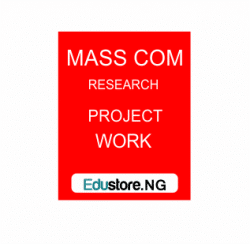PROBLEMS AND PROSPECT OF ONLINE INVESTIGATIVE JOURNALISM IN MASS MEDIA
ABSTRACT
Investigative journalism was described in many ways throughout the afternoon: as “uncovering the hidden”; “expensive”; “difficult”; “requiring dedication”; “has impact”; “holding power to account”. These terms are important: I’ve blogged elsewhere about journalism’s professional ideology and how it compares to bloggers’, and investigative journalism has its own professional ideology within that. If we are going to ask “But is it investigative journalism?” then these will be particularly relevant.
For example, there was a focus on investigative journalism as process that particularly fascinated me: Donal Macintyre talked about the ‘undercover reporter’ as a “narrative device” to allow them to create a narrative around important but difficult-to-dramatize issues, rather than something inherent in investigative work itself. In other words, for his purposes the process of ‘going undercover’ had a storytelling function as much as – if not more than – an investigative one.
On the other hand, some members of the audience dismissed modern examples of investigative work because it did not fit into this mythology.
A comparison of the Wikileaks, MPs’ expenses and Watergate stories is useful to flesh this out: in looking at those three where is the cut-off point that makes this one ‘investigative’, and another not? More to the point, why do we care?
DOWNLOAD COMPLETE WORK- For Reference Only: Materials are for research, citation, and idea generation purposes and not for submission as your original final year project work.
- Avoid Plagiarism: Do not copy or submit this content as your own project. Doing so may result in academic consequences.
- Use as a Framework: This complete project research material should guide the development of your own final year project work.
- Academic Access: This platform is designed to reduce the stress of visiting school libraries by providing easy access to research materials.
- Institutional Support: Tertiary institutions encourage the review of previous academic works such as journals and theses.
- Open Education: The site is maintained through paid subscriptions to continue offering open access educational resources.





